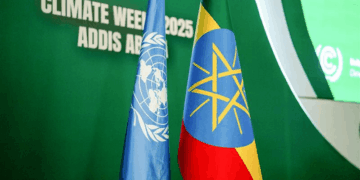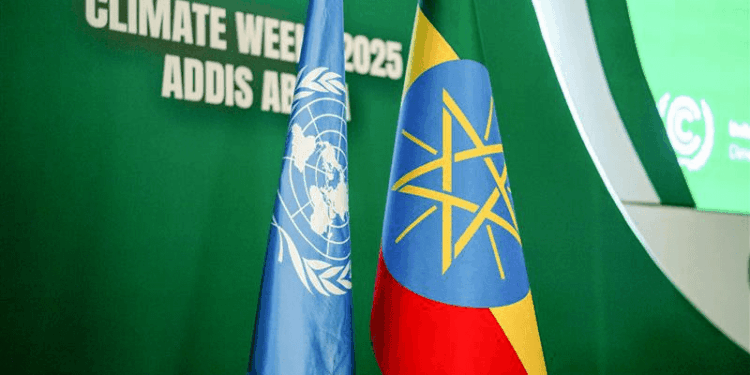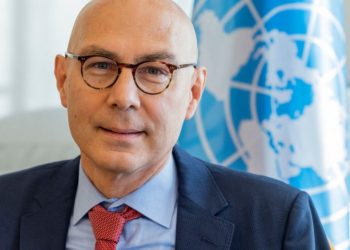By Ebi Kesiena
As climate-driven crises like droughts and floods worsen across Africa, leaders meeting at the African Climate Summit in Addis Ababa are pressing for urgent financial support. They argue that without significant funding, millions will remain vulnerable to extreme weather events that threaten lives and livelihoods.
African Union chairperson Mahmoud Youssouf stressed the urgency, calling for climate finance that is “fair, significant and predictable.” The UN estimates Africa needs $61 billion annually for adaptation this decade, yet only $13 billion flowed from wealthy nations in 2022.
The plea comes at a time when overseas aid is shrinking. Between 2023 and 2024, the world’s 17 largest donors cut aid from $213 billion to $198 billion. The U.S., under Donald Trump’s administration, slashed climate programmes particularly deeply, with Refugees International reporting that 98% of USAID’s climate-related initiatives were terminated. Projections from the OECD suggest aid to Sub-Saharan Africa could fall by another 16–28% in 2025.
Analysis from Refugees International carried out earlier this year found that 98 percent of all climate change related programmes from the United States Agency for International Development (USAID) had been terminated. Meanwhile, the The Organisation for Economic Co-operation and Development (OECD) predicts that aid directed from rich countries to Sub-Saharan Africa will fall by a further 16 to 28 per cent in 2025.
Many are hoping that in the absence of government actors, the private sector can fill the gap. On the ground at the African Climate Summit, there is indeed bullishness around that prospect, particularly when it comes to investment in renewable energy, given solar and wind power is now a cheaper energy source than fossil fuels in a number of African countries.
However without a shadow of doubt, a key topic at this week’s ongoing African Climate Summit in Ethiopia is the urgent need for billions in funding from rich nations, responsible for the climate crisis to flow to poorer nations to tackle and adapt to its devastating effects.



































